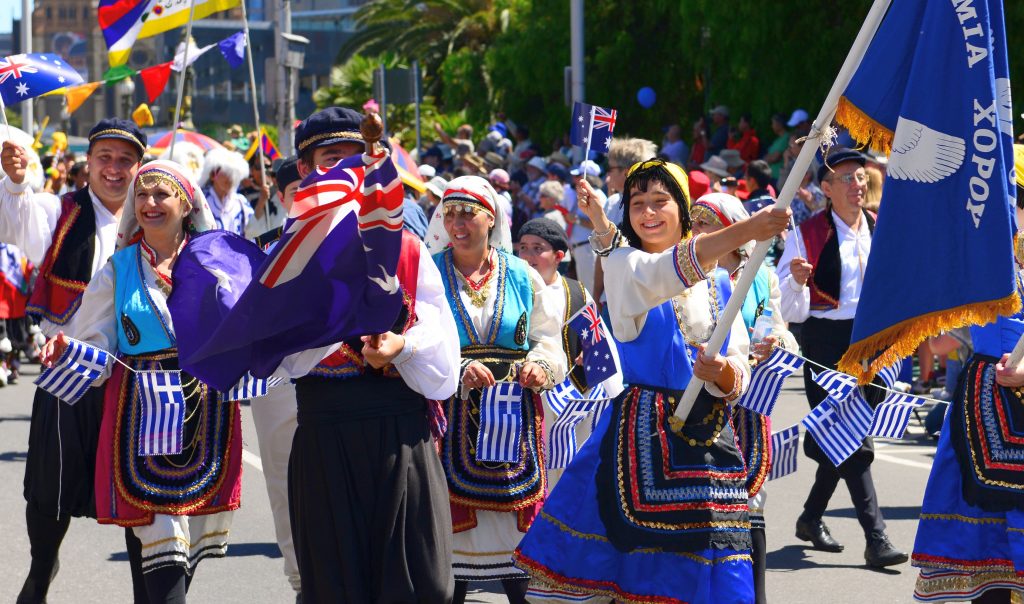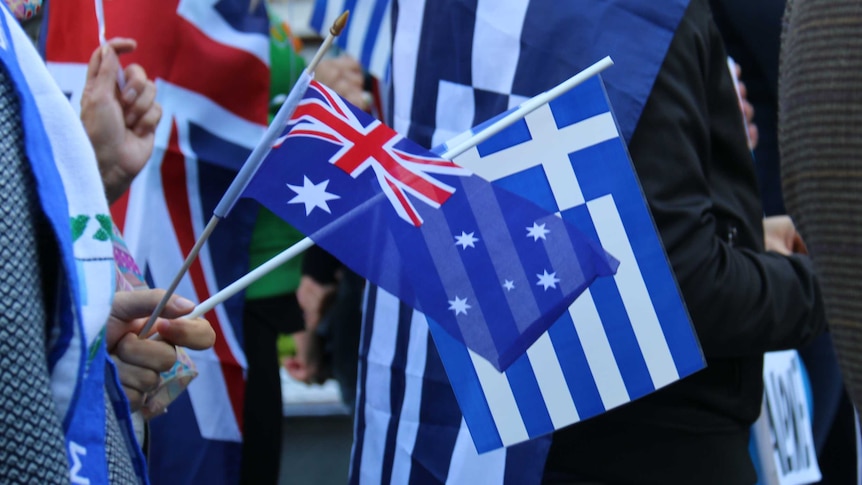By Professor Anastasios M. Tamis*
The ethno-cultural identity of the Modern Greeks was formed because of their evolutionary course as a nation over the last 3500 years and constitutes a product of the historical, social, economic, cultural, religious, and political influences exerted on him within the geographical area (space) where Hellenism operated and acted.
There are specific features, basic elements and particular components that constitute his national and ethnic identity, and they form the identity with which they defined themselves. The elements that shape and compose the national and ethnic consciousness of the Modern Greeks, all those who live within the national borders, imposed on us by the Great Powers and the geopolitical, diplomatic, and military compromises and treaties, are basically four.
For the Greeks of the Diaspora there is and operates an additional element that shapes the modern Greek identity. This is the influence which is exerted on the Greek settlers and their children by the new environment of the host country.

But what elements could we distinguish as characteristics that constitute the national and ethnic consciousness of Modern Greeks? What are the four constituent and fundamental foundations that together build and make up our identity?
- The cornerstone of our national identity is the ancient Greek world, ancient Hellas, its culture, its history, its contribution to man, society, politics, philosophy, science, the arts, and life. It is the prominent peculiarity of Greece, with all its virtues and disadvantages, it is its intellectual values, its character, its principles and values bequeathed over the centuries.
- The second basic and indivisible element of Modern Greek identity is Christianity and Orthodoxy. Orthodoxy as a faith, as a culture, as a philosophy, even as folklore. The initial radically hostile, and intransigently warlike attitude of the Christians towards the Greeks, their destructive fanaticism, was later tempered and eventually reconciled with the Fathers of the Church. Orthodoxy as a dogma and faith, as a culture and music, as a philosophy and a way of life, influenced the identity of the Modern Greece, perhaps more than any other nation.
- The influence of European Culture, the Wester way of life has been enormous. Through the Roman conquest, and then Humanism and the Renaissance and then Neo-humanism, Enlightenment and Romanticism, Europe led the Greeks to the first national revolution in the Balkans. The European principles, cultural and intellectual core values, their visions and concerns, the genesis of the European democracies, all deeply influenced the Greeks who had lived on the borderline between East and West and had been the cohesive link between Asia and Europe. Philhellenism, the Great Powers, and their support, essentially redeemed the struggling Greeks, when Ibrahim had razed the Revolution of 1821 to the ground.
- Our East, the Greeks of Asia Minor, Anatolia, Pontus and Cappadocia and the other “Greeks” of the Middle East and Egypt, who added their own cultural characteristics to the modern Greek body, constituting the overall picture of national identity, in the past and in history.
These four constituent traits, interwoven, synthetic, complete what we call modern Greek identity, a synthetic compound, like a bouquet of multiform and multi-colored flowers. Of course there are many Greeknesses, of all kinds. Each with its own specific weight, with its own dimension, and the national identity.

Greekness, is like a long train with thousands of wagons. Everyone chooses to enter their own wagon of Greekness. There are Greeks who still refuse to speak English. They do not have an Australian passport. Others who do not speak Greek, who refuse many expressions of Greek identity, and others even who are ashamed to admit that they are Greek, but they are moved by Greek music, Greek songs and inwardly feel guilty about their mentality. We have said many wagons, everyone has their own.
For us, the Greeks of the Diaspora, a fifth characteristic applies, one that is functionally added to our national and ethnic identity. For us this is Australia; for others, America, Canada, the countries of Latin America, where everyone lives.
The local culture, the local customs, the local core values, their traditions, the way of organization, the social structure of the country, the general mentality, all the things that affect us, not only linguistically, but also socially and politically, and culturally. We are influenced by the dominant society and country. Without perhaps being de-Hellenized, the local culture enriches us, only if of course we are not willing to relinquish the values of our national physiognomy.
Australian Greeks are different from Grecian Greeks. Australia’ Hellenes are more sensitized citizens, more active, in the sense that they consider volunteerism to be the cause of their social collective progress, they collude in public affairs, they participate more actively and in an organized way. They are closer to the family, they feel more intensely their national feeling, they express more openly their love for Greece.
Our children in Australia are more introverted, they do not manifest themselves openly, they even show respect to the elders, even they call all strangers “uncle” and “aunt”, they are restrained, even when they excel professionally and socially. For most Australian Hellenes, Greece is the ideal, perhaps much more than the Greek children of Greece. Perhaps because the latter don’t miss Greece there, they experience it every day.
Many students have been asking me anxiously for years now. What are we? Are we Greeks? Are we Australians? Are we Greek-Australians? are we Australian-Greeks?
They felt a schizo-identity, an internal confusion, because they did not want to diminish, to denigrate either cultural heritage within them; I replied soberly that identity is not a measurable phenomenon, it is dynamic; you cannot talk about percentages, about share. “You are 100 out of a hundred Greeks and you are 100 out of a hundred Australians,” I replied. No matter how many generations pass, the descendants will try to regroup their origins, to reconnect intergenerationally, to find their own ancestors; identity is lost when we deny the past. But without a past there can be no future.
*Professor Anastasios M. Tamis taught at Universities in Australia and abroad, was the creator and founding director of the Dardalis Archives of the Hellenic Diaspora and is currently the President of the Australian Institute of Macedonian Studies (AIMS).


